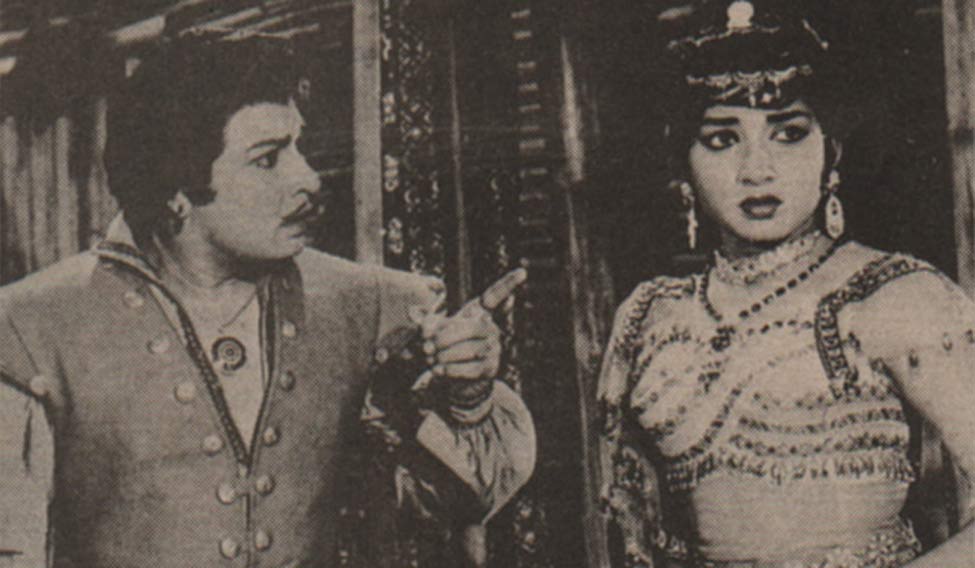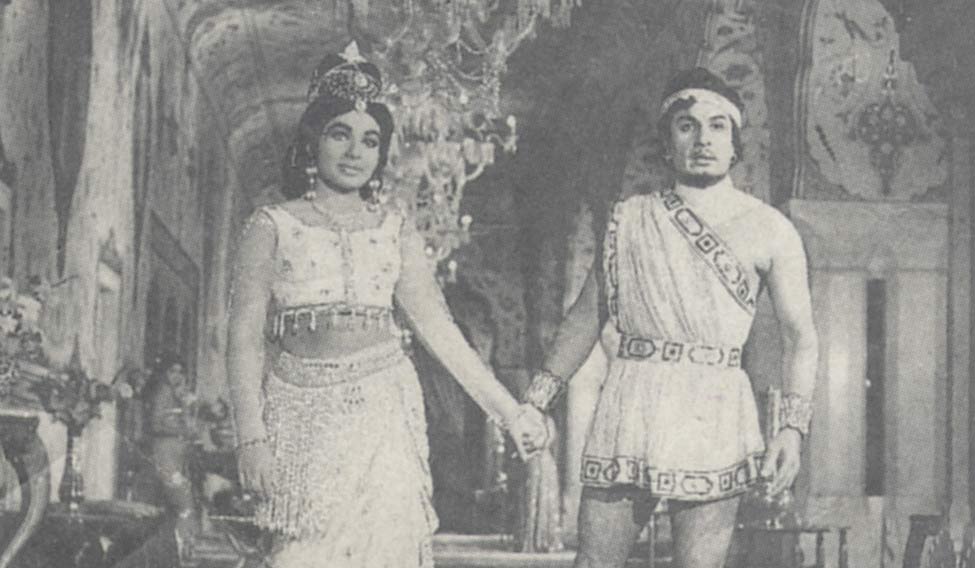M. Saravanan, chief of AVM Productions, distinctly remembers a wisp of a girl who came to the studio one day to perform a Bhangra dance number for one of the films. “The dance master of Naanum Oru Penn, directed by A.C. Trilokchander, wanted to include a Bhangra number. To convince us, he brought in a young girl seemingly straight from school, for she was in her uniform. On inquiring, I was told that she was Jayalalithaa, actress Sandhya's daughter. Little did I realise then that she would go on to become the leading lady of over 140 films and also become the Tamil Nadu chief minister several times over,” says Saravanan, whose father A.V. Meiyappan Chettiar founded AVM.
A financial crisis in the family meant Jayalalithaa had to give up her studies and take to acting. Jayalalithaa has once said in an interview, "It was a rude shock to me. My argument with Amma was that it was she who punished me for putting on make-up and told me to stay off cinema. And now she was pushing me into acting."
So the 16-year-old, instead of going to Stella Maris College, went to the sets of director C.V. Sridhar’s film Vennira Aadai (Widow’s robe). Since her entry into the world of films as a leading lady in 1965, Jayalalithaa has acted in over 140 films. “Vennira Aadai, meaning white clothes, is usually associated with widows. Ironically, her 100th film was Thirumangalyam,” notes film historian Mohan V. Raman. A loner, Jayalalithaa seems to have harboured a distrust for others rather early in life. "The experiences I have been through, the suffering and pain have taught me an important lesson. In life there is one person you must rely on—yourself," Jayalalithaa had said.
Her first film with her political mentor and founder of her political party (AIADMK), MGR was Ayirathil Oruvan in 1965; she also did a film called Kanni Thai with him in the same year. 1966 saw her don the leading lady's part in three of the nine MGR films that released that year. “The Saroja Devi era as MGR’s leading lady, was slowly coming to a close, at that time,” says Raman.
In 1967, she acted for the first time in a Sivaji Ganesan film Motor Sundaram Pillai, in which she played his daughter. She also acted in Kandhan Karunai with him in the same year, again not as his leading lady. It must be remembered that in 1967, MGR was shot by his colleague M. R. Radha and was laid up in bed for a better part of the year. MGR made four films that year and Jayalalithaa was the leading lady in three of them and In 1968 she was his heroine in all the eight films that were made.
The year 1968 also saw her pair up with Sivaji Ganesan as heroine for the first time in the film Galatta Kalyanam. Interestingly, her introduction was through the song Nalla idam, nee vandha idam (the place where you have come is a good place) - where Sivaji sings and welcomes her. At Sivaji's birthday function, she had thanked him for the acting-oriented role he had given her and that she learnt the true meaning of acting only after working in his films. Her performance in film Engirintho Vandhaal had got her a Filmfare award.

“In 1971, though she was the heroine in three of four MGR films, Manjula's career as his leading lady had begun. In 1973, she worked with MGR for the last time in Pattikaattu Ponnayya after which her Tamil film career slowly faded. She went into hibernation only to do B. Lenin's film Nadhiyai Thedi Vandha Kadal released in 1980 after having begun shooting in 1978,” says Raman. Other films like Suryakanthi bought her fame as an actress. Her last film Nayakudu Vinayakudu was in Telugu. Besides acting, Jayalalithaa has also sung many songs in her own voice—Amma endraal anbu from Adimai Penn being the first, Raman adds.
Jaya's peers and film fraternity recall her as a fine actress and a true professional. Says Saravanan: “When we made the Hindi film Man Mauji, Jayalalithaa did a short cameo as ‘young’ Krishna. Thereafter, we featured her in our Tamil films, Major Chandrakanth, Enga Mama and Anaathai Ananthan. She was truly a director’s actor and not only followed every instruction to the T, but also delivered every scene with utmost professionalism; she was quick to grasp every nuance that was required for a scene. However busy she was, she never let go of her love for books. “Between scenes and during breaks, Jayalalithaa was known to be buried in books; she was a voracious reader,” said Saravanan.
To Ramkumar Ganesan, film producer and son of actor Sivaji Ganesan, Jayalalithaa was like a family member. “She was a close friend of our family and have visited us quite often on important occasions and spent considerable amount of time with our family members. I have seen and interacted with her on several occasions during the shooting of my dad’s films and the one thing I have noticed was her immense love for reading books. I used to be a book lover too and many times she would inquire about what I was reading,” says Ganesan.
Producer Suresh Balaji, son of yesteryear actor and producer, K. Balaji also talks of the humane side of a busy actor and an even busier politician, when she turned into one: “My dad and Jayalalithaa were, besides being contemporaries in the film industry, very good friends. When she turned 60, she visited my dad to obtain his blessings. Later, when dad was battling health issues and was admitted in the ICU, she again visited him. When he passed away on May 2, 2009, I remember, she cancelled an engagement in Coimbatore and flew down to offer her condolences. All these instances were when she was CM.”
Even after she moved away from the film industry to take on greater responsibilities, Jayalalithaa held the industry and its issues close to heart. “I remember an occasion when I had written her a letter voicing my concern of the rampant piracy that was taking place and mentioning that we would be forced to discontinue film making, if it was not checked. After many months, I received a request from her office to meet her the next day. By then, I had forgotten about the letter. After we exchanged pleasantries and discussed film business, she pulled out my letter and said that we, being one of the foremost, oldest and leading film producers should never cease film making and that she would be accessible to me at any point to seek her audience, to safeguard the industry,” recalls Saravanan.
Jayalalithaa's life has been as eventful as her movies—with its share of controversies, twists and turns, and a death that shook the nation. Her death marks the end of an icon in Tamil Nadu's endearing chemistry between cinema and politics.




